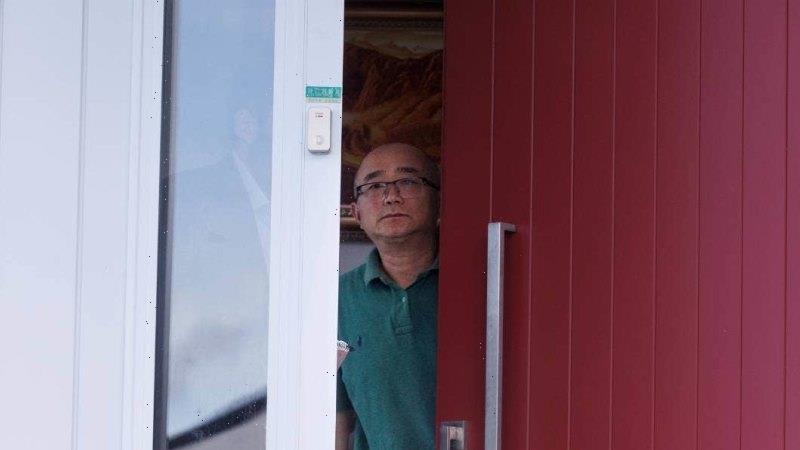A senior analyst for the New Zealand government has been accused of providing privileged information to the Chinese government by the country’s Security Intelligence Service.
Yuan Zhao, who also goes by the name Jason, says he and his family were “detained” at Wellington Airport in October by New Zealand’s Security Intelligence Service (SIS) as they were returning from a holiday in Australia. His phone was seized, and his son’s laptop was searched.
Yuan Zhao works as a senior analyst at New Zealand’s Public Service Commission and has been accused of passing information to the Chinese government – an allegation he denies.Credit:Robert Kitchin/Stuff
The Chinese-born New Zealand citizen has said on a fundraising website, which has since been removed from the internet, that he was accused of being an “insider threat risk” as he provided “privileged insights” and reported to the Chinese government and held “close personal relationships” with officials of a foreign government in New Zealand.
He said he felt threatened by the SIS, compelled to participate in a voluntary interview in another room while his wife and three children were “hostage”, and told not to talk about the matter as the SIS could find him anywhere.
He has been suspended from his job at New Zealand’s Public Service Commission. His colleagues at the commission noticed he disappeared from the workplace late in 2022.
Zhao, when approached on Tuesday, denied he had provided the Chinese government with information. He said the SIS had no evidence to substantiate the accusation.
“I’m innocent. Someone framed me up,” he said.
Both the SIS and Public Service Commission declined to comment.
An SIS spokesperson said the agency had “a long-standing approach of not discussing what may or may not be specific areas of operational focus or individuals”.
A Public Service Commission spokesperson said that due to “standard security intelligence practice, we do not comment on individual security matters”.
There have been few public cases of foreign interference in New Zealand.
Former New Zealand National Party MP Jian Yang.Credit:Stuff.co.nz
In 2017, National Party MP Jian Yang was revealed to have taught Chinese spies at an elite school, drawing the attention of the SIS. He retired from Parliament in 2020, at which point then deputy prime minister Winston Peters accused National of turning a “blind eye” to foreign interference.
But it is known the SIS has increasingly focused on curbing espionage and foreign interference in recent years, and – while the agency does not specify this – China is seen within the government as the pre-eminent espionage threat.
The SIS defines an “insider threat” as a person who uses their access to an organisation’s assets to “harm the security of their organisation or New Zealand”. An insider threat could do this “knowingly or unknowingly”, including through spying or the “unauthorised disclosure of information”.
Zhao, who became a New Zealand citizen in 2006, has worked as a senior analyst in a strategic information team for the Public Service Commission since 2021, according to his Linkedin page.
But he said the accusation extended as far back as a decade ago when he was an analyst for New Zealand’s Ministry of Business, Innovation, and Employment (MBIE) on a team he said worked on the New Zealand-China free trade agreement.
The Public Service Commission declined to comment on Zhao’s suspension.
He said the SIS told him “you should know” what information he shared, and who he reported to in the Chinese Government. He said he knew nothing of this.
His phone was not returned to him until a month later, he said.
Zhao remains suspended from his job at the commission as he waits for an employment process to finish. He said he had been diagnosed with acute stress disorder, was now taking blood pressure medication and was seeing a psychotherapist.
He said he had complained to the Inspector-General of Intelligence and Security, a government-appointed watchdog of the SIS, who had agreed to investigate.
The SIS spokesperson said, in a statement, the agency did not have enforcement powers and could not “detain or arrest anyone, or require them to speak to us”.
The prime minister’s office referred questions about Zhao to the intelligence agencies, as it was an “operational matter”.
Stuff.co.nz
Most Viewed in World
From our partners
Source: Read Full Article


